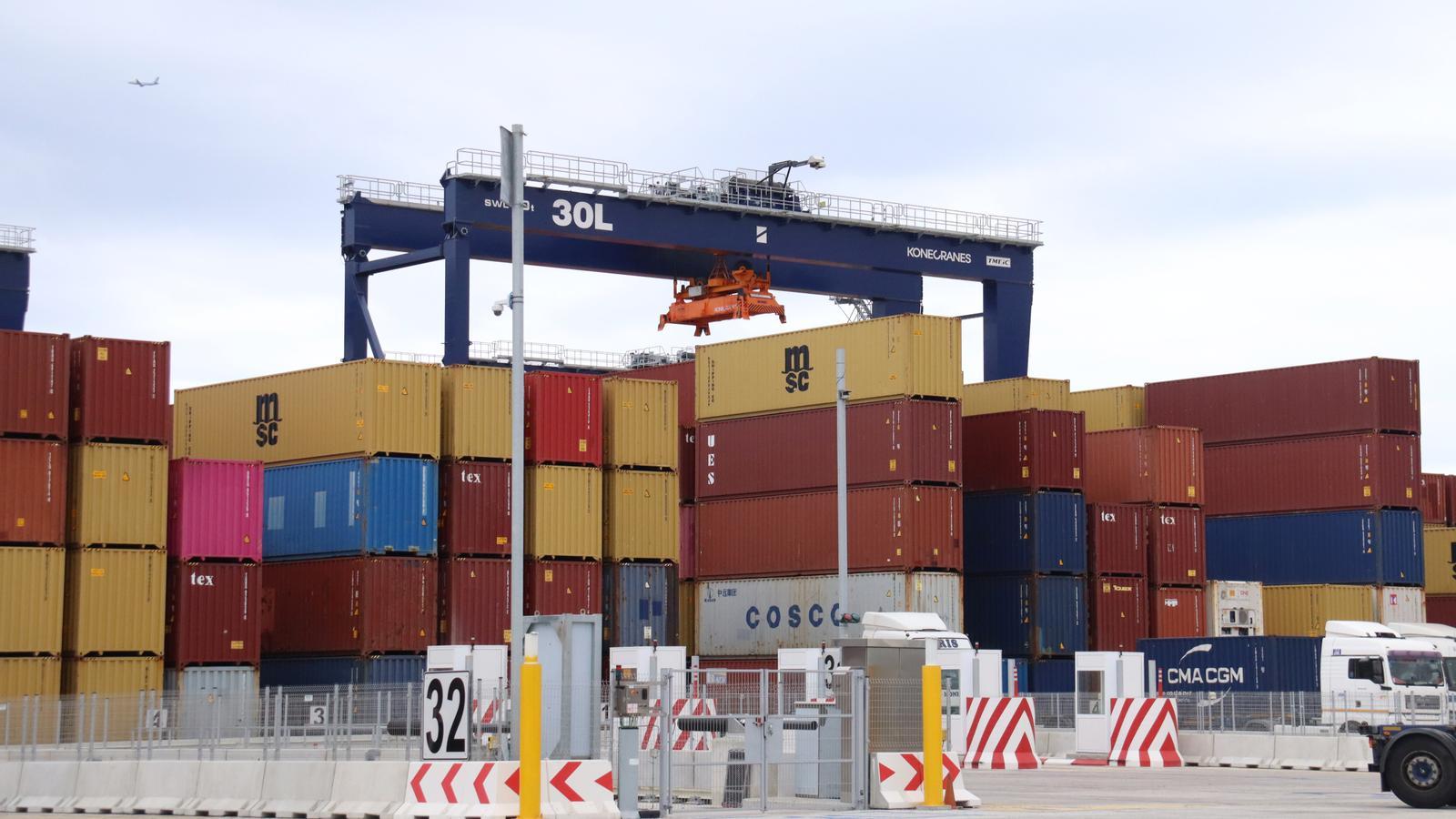The reconfiguration of global traffic impacts the Port of Barcelona
Container transport fell during the first half of the year in the Catalan infrastructure sector, immersed in a powerful investment cycle.


BarcelonaIn an increasingly volatile world, international trade is seeking new strategies to secure its routes. Shipping companies have signed new trade agreements to establish optimal port calls, coinciding with the paralysis caused by the war in Gaza in the Suez Canal, the main gateway to the Mediterranean for ships from Asia. This entire reconfiguration of global traffic has impacted the Port of Barcelona's activity in the first half of 2025.
A year ago, the Port saw container traffic, its largest business area, grow by 18.5% due to the blockage in Suez and the establishment of closer enclaves. For a ship arriving in the city from Shanghai, more than 10 days were added on the route. In recent months, a new balancing act has been finalized between companies such as MSC, Maersk, and Hapag-Lloyd to better respond to increasingly frequent disruptions in the supply chain, taking into account how US tariffs could ultimately impact them. "After 10 years of relative stability in the maritime alliances, they have all been reconfigured and changes have occurred on the scales. It has been difficult to manage in all the world's ports, but since May the situation has stabilized," summarizes José Alberto Carbonell, president of the Port of Barcelona.
The Port of Barcelona estimates that all these adjustments impacted around 200,000 containers that were unloaded at the port and then departed for other destinations. This has caused container traffic between January and June to fall by 7%, to 1.85 million TEUs (a unit of measurement for containers equivalent to 20 feet), bringing total traffic to 34.68 million tons, a 3% decrease compared to a year ago. The infrastructure department has detected a change in the trend in container transshipment this July and expects a strong year-end.
While the number of containers in traffic fell, another factor grew, with a much greater impact on the local infrastructure. Container imports grew by 12%, reaching nearly 357,000 TEUs, mainly from Asia, and exports increased by 8%, reaching more than 365,000 TEUs. "The extraordinary growth in foreign trade demonstrates the resilience of the port's economy," remarks General Manager Àlex Garcia. This strong performance has led to a 4% increase in revenue compared to the same period last year, reaching €101 million. This is not to mention the record revenue of €200 million in 2024.
Vehicles fall
The crisis in the automotive sector is also being felt at the Port of Barcelona, where electric cars are struggling to take off and the arrival of much cheaper Asian brands is underway. The Catalan capital is the departure point for cars manufactured in plants such as Seat's Martorell plant and Volkswagen's Pamplona plant, which have seen production declines, but it is also the entry point for 80% of Chinese vehicles arriving in Spain.
With 363,000 vehicles moved from January to June, a 6.5% year-on-year decrease, exports fell by 14%, mirroring the 12% drop in manufacturing in Spain. However, imports grew by 7%, with China, Turkey, and Spain. Despite this slowdown in the industry, one of the main projects to be completed in the first half of the year at the port has been the awarding of a new vehicle terminal to the Japanese company NYK, which will entail an investment of €75 million. With capacity for 8,000 cars, it will be the first automated silo of this size in Europe.
Bids above €330 million
Since the beginning of 2000, the Port of Barcelona has not launched an investment cycle like the one it has launched in 2025. The infrastructure is expected to invest more than €330 million this year, 95% of which has already been tendered. Among the projects underway are the first phase of construction of the future Muelle de Cataluña (Catalunya Wharf) and the new berthing points at the Muelle de la Energía (Energy Wharf) for bulk liquids, one of the traffic routes that has performed best this first half of the year, after the blackout caused natural gas imports to rise. With the recently closed agreement with Barcelona City Council, to reduce the number of cruise terminals, the construction of a new terminal begins, which will be designed by the architectural firm b720 Fermín Vázquez Arquitectos.
